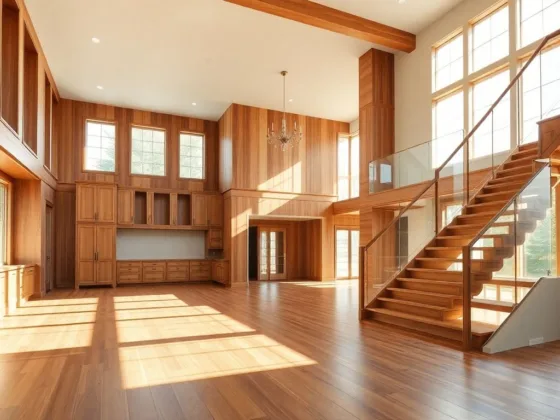Table of Contents Show
It’s wonderful that today’s world lets you run a small business right at home in your pajamas. But by now you’re probably starting to wonder: When do I need to move this to a more “official” setting and rent out some office space?
The reality is that this is never an easy question answer, and it’s hard to even know when to start.

For some businesses, the move to an office needs to happen sooner than for others – and a lot depends on what helps you work effectively, too. Luckily, though, the biggest obstacle is to simply understand your situation and what each of these settings has to offer.
So below, we’ll go through the main considerations necessary for making the right decision for your budding business venture.
Read Also:
Efficiency and Overhead
It might be an obvious place to start, but it’s easy to forget that the lack of any real overhead from working at home is a wonderful luxury.
That means checking and triple-checking your budget against any possible rented spaces is crucial, as rent for an office is usually a big step up in terms of expenses.
Beyond just the office itself, though, is the cost of utilities there (WiFI, electricity) and the commute to and from your home. The commute represents another cost, as well: Efficiency.
Working from home gives more opportunity for efficiency in your life, as the time it might otherwise take you to commute can instead be used to take care of household chores or knock out your exercise routine.
In other words, renting office space takes up resources that might be better used to keep your life running smoothly – but it is an investment, after all.
Loneliness, Team-building — and Distractions
If you talk to anyone who works from home, you’ll quickly find out that isolation is one of the biggest pitfalls. Whether you have employees at your small business or not, running it from home tends to be a one-person show from start to finish.
Any communication you have with co-workers or clients is done virtually rather than face-to-face, and while that cuts out the inefficiency of meetings, it can also get lonely after a couple of weeks.
Renting office space allows for a more team-oriented setting, as you can walk to the next room to ask that question you have and maybe take a minute to make lunch plans, too.
The paradox is that both loneliness and co-workers account for major distractions in the work-from-home and office space settings, respectively – meaning getting a good understanding of who you are as a worker is crucial.
For example, if you’re very self-motivated, you can leave the weekends for refilling your social batteries – and indeed, people who work from home may be more productive.
But if the isolation gets to you, that malaise could make you more likely to succumb to the allure of spending your days napping.
Similarly, if you can shut out distractions and outside conversations, working among other people works great – but if not, those lunch plan conversations can eat into your time quickly and sap productivity just as easily.
Boundaries and Perceptions
Finally, it’s important to understand what value the physical office space provides you with. Perhaps the most straightforward of these is a professional look.
As your business grows – depending on what industry you’re in – clients might be turned off to find out everything is still conducted remotely, with no physical space they can go to. There are many office for rent services.
Of course, not all clients would think anything of it, and it’s up to you to understand what your clients will expect, but it’s hard to deny that an office makes everything look more official.
But the physical space benefits you, as well.
As mentioned above, working from home usually means a mix of work and personal tasks in a given day – but that can make it hard to mentally “clock out” and switch off at the end of the day.
Renting office space gives the clocking in and out a physical component, as your commute to and from work bookends the workday, allowing you to relax more completely once you go home.
There are solutions to this that find something of a middle ground, though.
For example, there’s a reason the desk in my bedroom was always unused for anything but storage – keeping workspaces separate from areas of the home used for relaxation is key to staying in the proper mindset for both work and home life.
And if closing off an extra room or corner isn’t possible, you can add in a workspace separate from your home, reinforcing the mental separation between work and life with a physical boundary.
But whatever you decide, it’s important to get a strong grasp on what the physical space of an office does for you and your business – and how valuable or necessary that is.
Understand Your Business — and Yourself
To put it more holistically, the key to answering this question is to thoroughly understand where you’re at right now – you, your business, and your workspace options.
It’s vital to ask yourself: How can I best put myself in a position to work productively while making sound decisions for my business?
Working from home can be a very convenient and comfortable experience, but it might not be for you if you have a hard time motivating yourself to work when your couch is just right there.
An office setting, meanwhile, can put you in a mental and physical “work mode” with less isolation, but it’s not always easy to shut out the distractions that come with having other people around.
And of course, you need to know: Where is my business at right now, and what do I want to happen in the immediate future?
If you’re just starting, or if your small business doesn’t require a lot of face-time with clients, it might not make sense to increase your overhead by moving to a more official office space.
But if you’re expanding and looking to put a more professional foot forward, you might need more room to breathe than what working from home can offer.
In other words, once you understand where you’re at, where you’re going, and what the best conditions are for you to get there, you can make the right decision to keep your business thriving.











